5 Thoughts On The World Cup So Far
5 Thoughts On The World Cup So Far
Alex Rees' takeaways from the opening half of the 2019 Rugby World Cup.
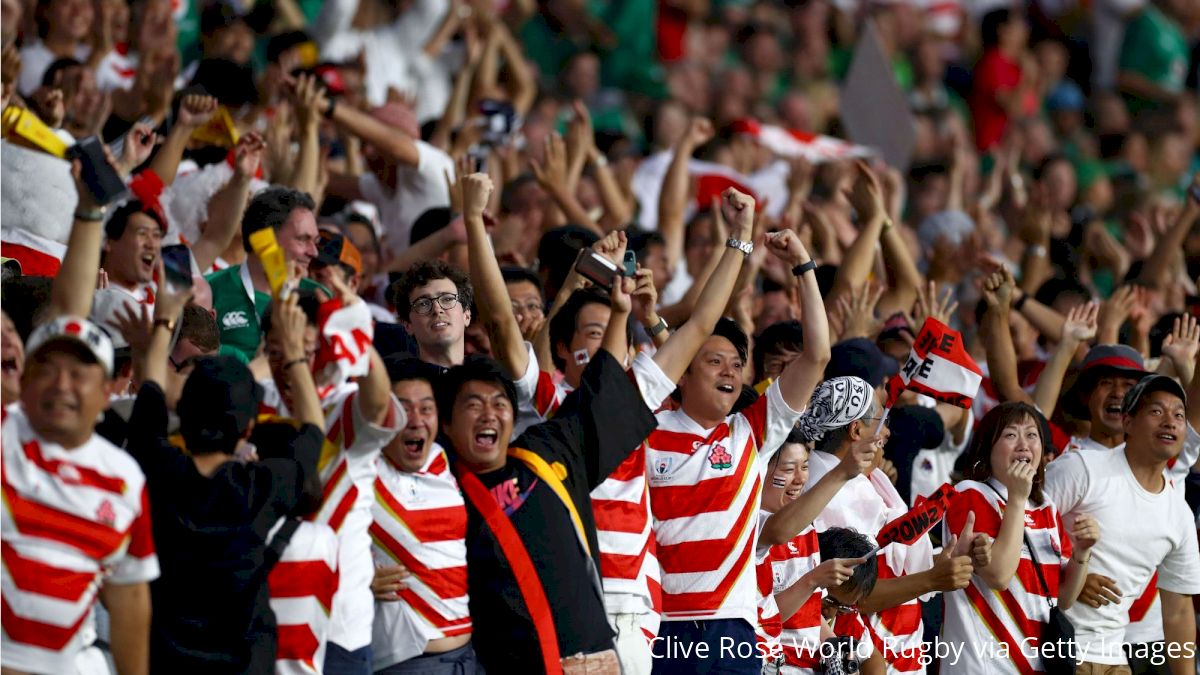
We're now past the halfway point of the 2019 Rugby World Cup, and boy has it been quite the show.
We've seen upsets, we've seen late-game drama, and, of course, we've seen a fair bit of controversy over the past two-and-a-half weeks. As we progress further and further into the tournament, the action should only intensify as the best of the best duke it out for world rugby supremacy.
After 28 matches, here are five of my biggest takeaways from the first part of the 2019 Rugby World Cup:
1.) The conditions are no joke
We all knew going into this World Cup that Japan was going to be warm, and it was going to be humid. We knew that many of the players, who mostly come from cooler climates, were going to have to get acclimatized to the different weather they'd be facing in Japan.
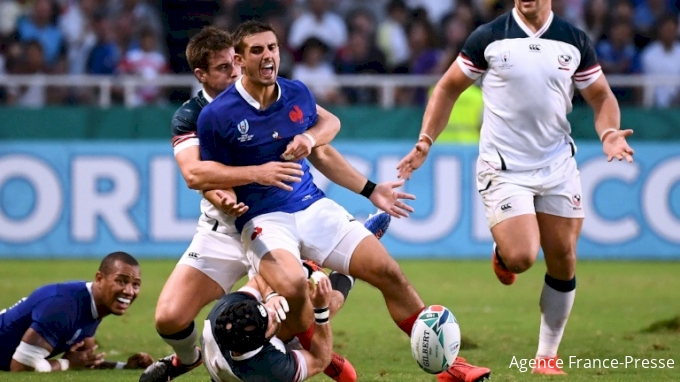
What few us anticipated was the effect the conditions would have on the ball. It's been like a bar of soap for many of the athletes, and as a result we've seen a great number of handling errors, even from some of the world's best.
The team most accustomed to this climate, Japan, have been one of the best performing units of the tournament so far. They seemed the fitter, livelier, more composed team throughout the second half of their huge upset win over Ireland last weekend, demonstrating the home field advantage they've got going for them.
One of the key factors of the knockout stages will be who can adjust to the humidity the best, both in terms of fitness and ballhandling.
2.) The cross-field kick is on
One of the key weapons utilized by lots of teams so far has been the cross-field kick pass. It appears that teams all over the world have learned that one of the best ways to counteract the high pressure, rush defense is to take advantage of the winger that closes the door by kicking the ball in right behind him.
Both of the All Blacks' tries against South Africa started with kick passes to the wing (Sevu Reece) by flyhalf Richie Mo'unga. Wales and Australia each scored tries against one another with the same method. France scored that way against the USA, and South Africa twice against Italy, amongst others.
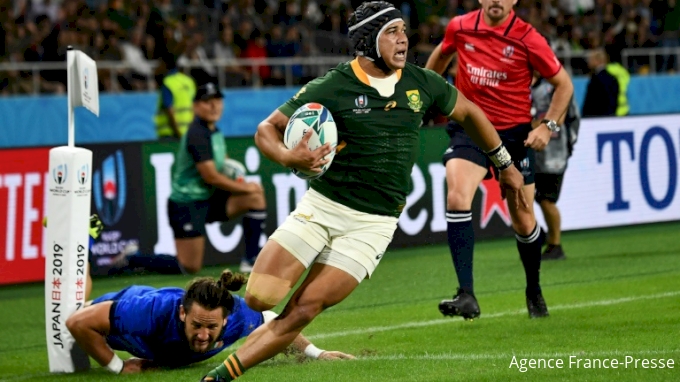
What had generally been employed as just a "shot at nothing" when a team was under advantage has now become a planned-out part of many teams' attacks. Anyone that watches enough Super Rugby has seen Beauden Barrett and the Hurricanes operating this move frequently over the past four years, but now it seems like the rest of the world has joined the party.
Yes, players have been utilizing the boot to pass the ball for decades, but not nearly at the rate, nor with the accuracy that guys are doing it now. This added weapon to many teams' repertoires should serve to open up the middle of the field more, as defenses won't be able to just simply rush forward and close the gate on the outside center.
3.) The All Blacks are still the All Blacks
Okay, have they actually won the whole thing yet? No. But New Zealand's opening round performance against South Africa reminded many of us exactly why they're the world's finest and are heading for an unprecedented three-peat.
The "Beau'unga" combination is only getting stronger with each game, and by the time the knockout phases roll around they should be humming right along.
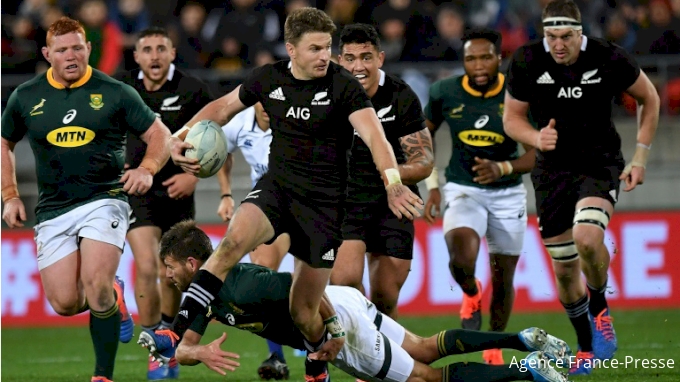
Ardie Savea looks like he may well be the best player on the planet right now (not named Cheslin Kolbe.) He's had some massive shoes to fill, literally and figuratively, in replacing two-time World Cup champion and All Black legend Jerome Kaino in the #6 shirt.
Brodie Retallick, debatably the best lock in the world, has just returned to fitness and came out of his first game back against Namibia unscathed. His presence brings not only class and talent to the All Blacks, but also the experience of a World Cup champion who knows what it takes in the big moments.
The Kiwis are still the team to beat, though this doesn't mean they are unbeatable. Their potential quarterfinal opponents, Ireland, have beaten them in two of the last three meetings and are going to be hungry for a first-ever World Cup semifinal berth.
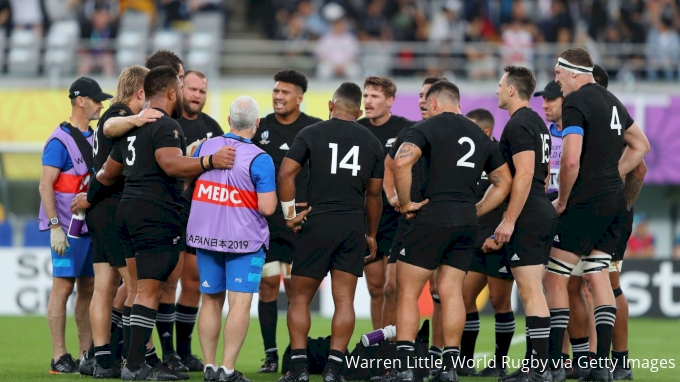
The English too have looked in great form since the summer, and should they meet New Zealand in the latter stages of the tournament, we'll be in for an instant classic.
South Africa, Wales, France, and Australia all have it in them to spoil the party as well. But, realistically, it's once again the All Blacks cup to lose.
4.) Japan Is No Longer An Underdog
The Brave Blossoms' historic defeat of the Springboks at the 2015 Rugby World Cup has been hailed as one of rugby's landmark upsets and greatest triumphs of all time.
Eddie Jones' men shocked the world, defeating the mighty Springboks (who took third at that World Cup), 34-32.
It felt like everything the Brave Blossoms threw at the Boks that day stuck. It seemed like it was just their day, their one shining moment as a rugby nation. But it was much more than that. And it wasn't a fluke.
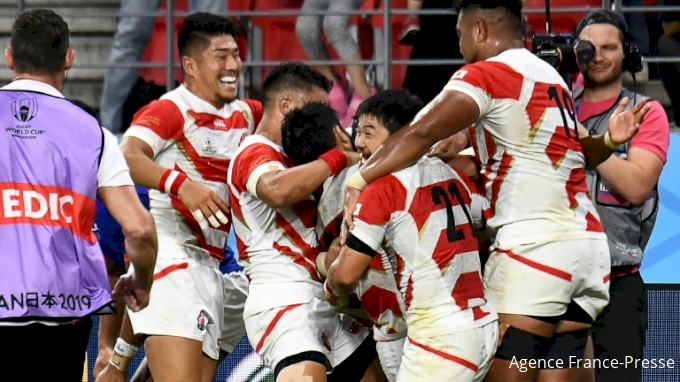
The Japanese have quietly been building themselves into a powerful rugby nation for quite a few years now. Have a look at their domestic leagues; the money invested into them and the support/attendance from the fans is almost second-to-none.
What the 2015 side did was validate the efforts of all the people in Japan who have worked so hard to make it the rugby culture that it is. They offered their fans the first glimpse at what they could be if the nation continued to pour their heart and soul into the beautiful game.
Four years later, and those same people are hosting what, by all accounts, has been one of the most wonderful World Cup spectacles in memory. People from all around the world have witnessed first-hand, or via television, the passion that Japan has for the sport and how much it genuinely means to the nation.
Four years on from that famous win, and many of those same players have now spent years playing in Super Rugby for the Sunwolves, testing themselves against the toughest competition in the world, hanging tough and making their people proud.
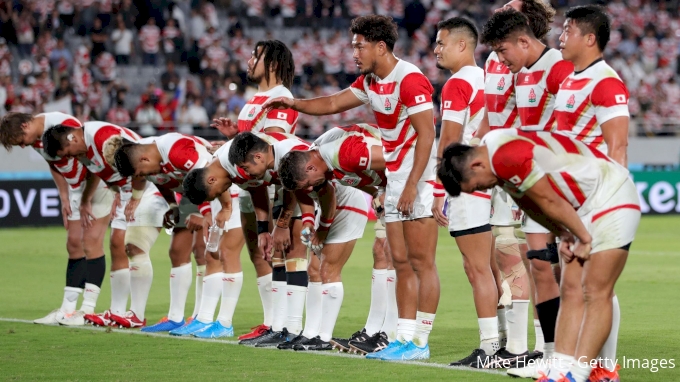
So it shouldn't come as a surprise to any of us that Japan, in their home country, in front of their beloved fans, took down yet another giant in Ireland this World Cup.
The real tester comes next, when the Brave Blossoms take on Scotland, knowing that a win or a tie will see them into their first ever World Cup quarterfinal, where they'll face... you guessed it. South Africa. And this time, let's think twice before we consider them major underdogs.
5.) The Eagles are improving, but so is everyone else
Every World Cup, we as American fans hope that this is the year we finally make the jump and defeat some of the big names in world rugby.
We hope that we see improvements on the scoreboard that justify the improvements we've strived for as a rugby community, on and off the pitch.
Unfortunately, we haven't seen that yet in two games at this World Cup. However, the difference in the team from game one to game two was substantial. The Eagles were well and truly neck-and-neck with France for the better part of 65 minutes of that match.
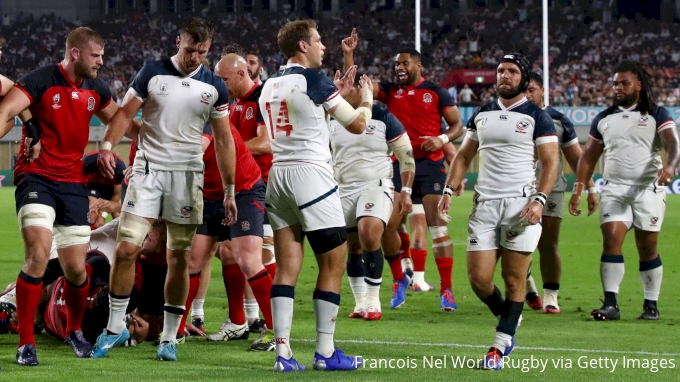
Ultimately, the depth of France outlasted the depth of the United States, but it didn't come easy and it didn't indicate that our path to world prominence is obsolete.
It could be easy for some of us to say that we're doing it all wrong, that we need scrap what we're doing because the results haven't gotten markedly better. But we truly have been improving, and realistically we've been improving alot. The reason the scores don't reflect this is that every other nation is also improving.
Our 2019 Eagles are leaps and bounds better than they were four years ago, and the same could be said about every other team. The game of rugby is still growing, and it's the little innovations that teams make on a constant basis which help them avoid being stagnant and stuck in the past.
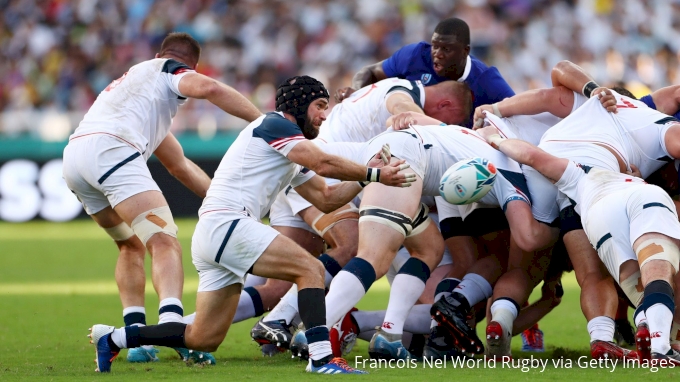
The New England Patriots are a great example of this. They never go into a game week with the same gameplan they had the week before, even if it worked great for them then. It's about constantly adapting and raising the bar, otherwise the rest of the pack will catch up to them.
The All Blacks, for instance, wouldn't rely on what worked for them in 2015, because what worked then and what works now are two different things. They too are on a path of constant development and improvement. No matter how legendary the 2011 or 2015 teams were for their eras, those teams would probably not win the World Cup today.
This is not to diminish anything they accomplished. Those are two of the greatest teams of all time, and they helped revolutionize the game. The game today wouldn't be what it is without them, but the game today is also beyond what it was then. It's just the natural progression of sports.
#USMNTXVs Captain @blainescully1 previews Wednesday's matchup with Argentina in #RWC2019. #RWCKumagaya #ARGvUSA pic.twitter.com/7hIvn0tNTH
— #USAW7s Champs (@USARugby) October 7, 2019
For the United States to really catch up to the rest of the pack, we have to be improving at a rate faster than the other nations are, and even then that will take a while. But at the moment, it is clear that we have closed the gap some.
With two more games to go, against Argentina and Tonga, we will learn alot about these Eagles, and what's in store for the future. A positive result against the Pumas and, hopefully, a win against Tonga will help us all realize that we really have been getting better.